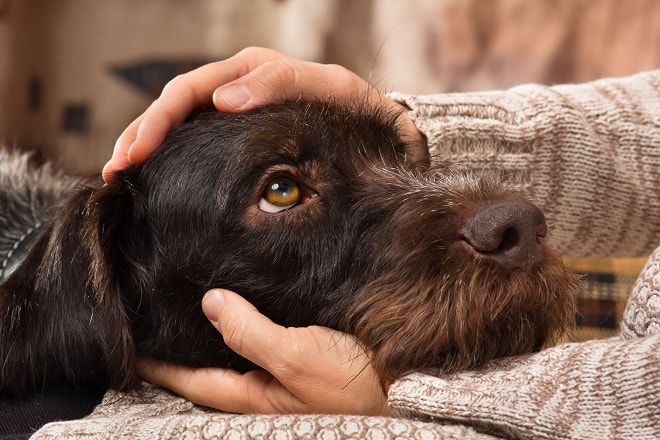7 dangerous diseases you can get from dogs
Humans who come into direct contact with dogs can get rabies, ringworm, dermatitis, roundworm infections, hookworms, leptospirosis, and tapeworms.
Wild
Rabies is transmitted mainly through bites, scratches, and licks of rabid dogs on damaged skin. The disease in humans can be prevented and treated with vaccines or anti-rabies serum. If left untreated, the disease is almost 100% fatal.
Symptoms in pets: Excessive salivation is the most common sign of rabies. Other symptoms include behavioral changes, fever, sensitivity to touch, light and sound, hiding in dark places, staggering, loss of appetite and seizures.
Symptoms in humans: initial symptoms include fever and headache. As the disease progresses and infects the central nervous system, the patient will experience insomnia, anxiety, fear of water, fear of wind, convulsions, hallucinations, and paralysis.
|
The best way to prevent rabies in dogs is to vaccinate them. Photo:Prevention |
Hookworm
This is a bacterium that lives in the urine of infected animals. You should have your dog vaccinated against this disease and not swim in water that is suspected of being contaminated with animal urine.
Symptoms in pets: fever, vomiting, diarrhea, loss of appetite, depression, infertility...
Symptoms in humans: high fever, headache, chills, muscle pain, vomiting, diarrhea, rash, more serious are signs of meningitis or kidney and liver failure.
Roundworm
Roundworms live in dog feces. Use gloves, a plastic bag, or a shovel to clean up dog feces, then wash your hands thoroughly with soap.
Symptoms in pets: diarrhea, vomiting, bloody stools, worms seen in stool.
Symptoms in humans: Humans are infected with roundworms through fecal-oral transmission. Infected people may experience difficulty breathing, hives, abdominal pain, and bloody stools.
Hookworm
This is a parasite that attaches to the lining of the dog's intestines. The eggs in dog feces can be passed through your skin if you come into contact with them.
Symptoms in animals: diarrhea, weight loss
Symptoms in humans: decreased appetite, anemia, cough, wheezing, or rash.
Tapeworm
Tapeworms are not only found in undercooked pork, you can also get them from an infected dog. The best prevention is to wash your hands frequently and avoid eating infected dog meat.
Symptoms in pets: diarrhea, loss of appetite, nausea, long worms in vomit.
Symptoms in humans: abdominal pain, diarrhea, fatigue, frequent hunger or loss of appetite.
Ringworm
Ringworm is a fungal infection that develops in hair follicles and is spread through direct contact. Regular cleaning of your dog’s bedding, hand washing, vacuuming and disinfecting are the best ways to avoid ringworm.
Symptoms in pets: red lesions, crusty skin and patchy fur, but may be difficult to see under their fur.
Symptoms in humans: the disease is often easily detected by a circular rash that is often red and itchy.
Dermatitis
Dog bites can cause serious skin infections and cellulitis if not treated immediately. If you have sensitive skin, wash your skin after being licked by a dog to avoid rashes.
Symptoms in animals: none.
Symptoms in humans: bite marks and skin infections.

